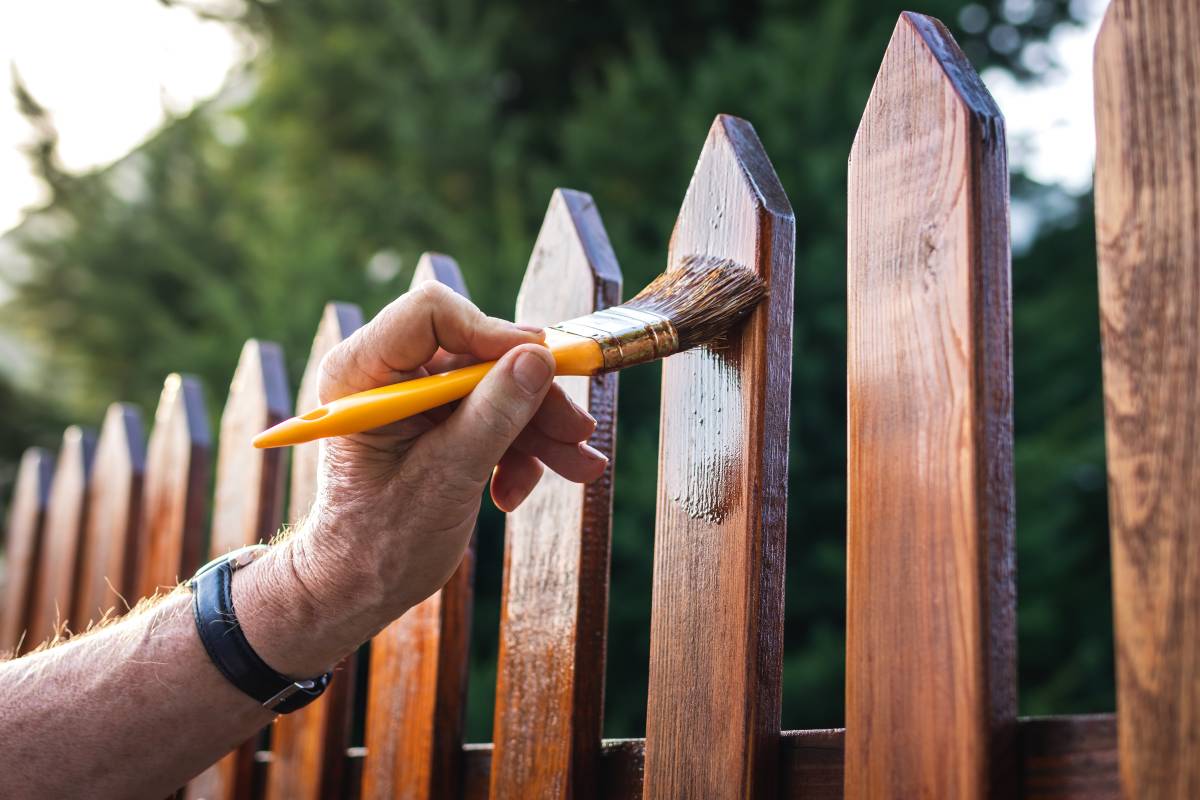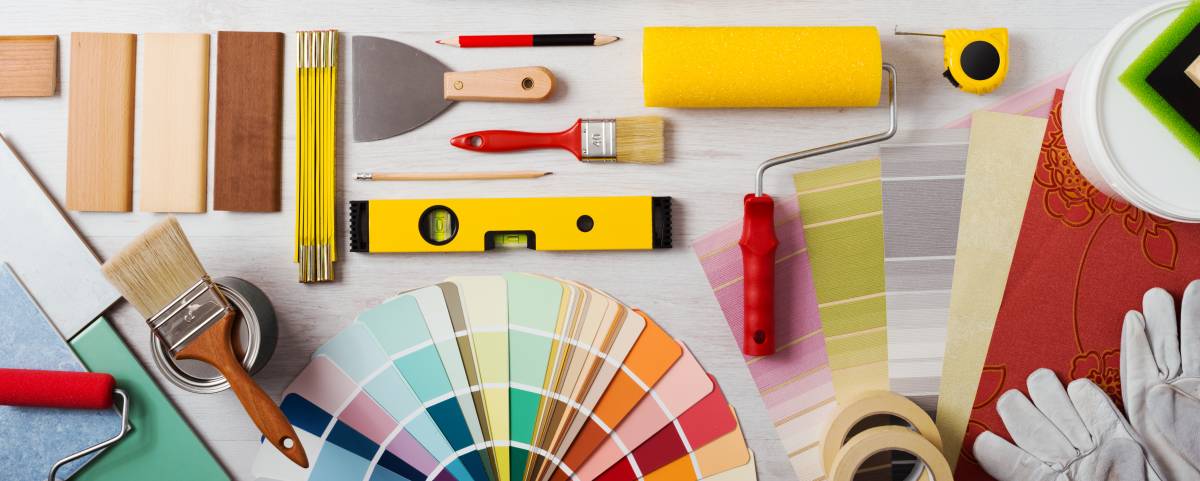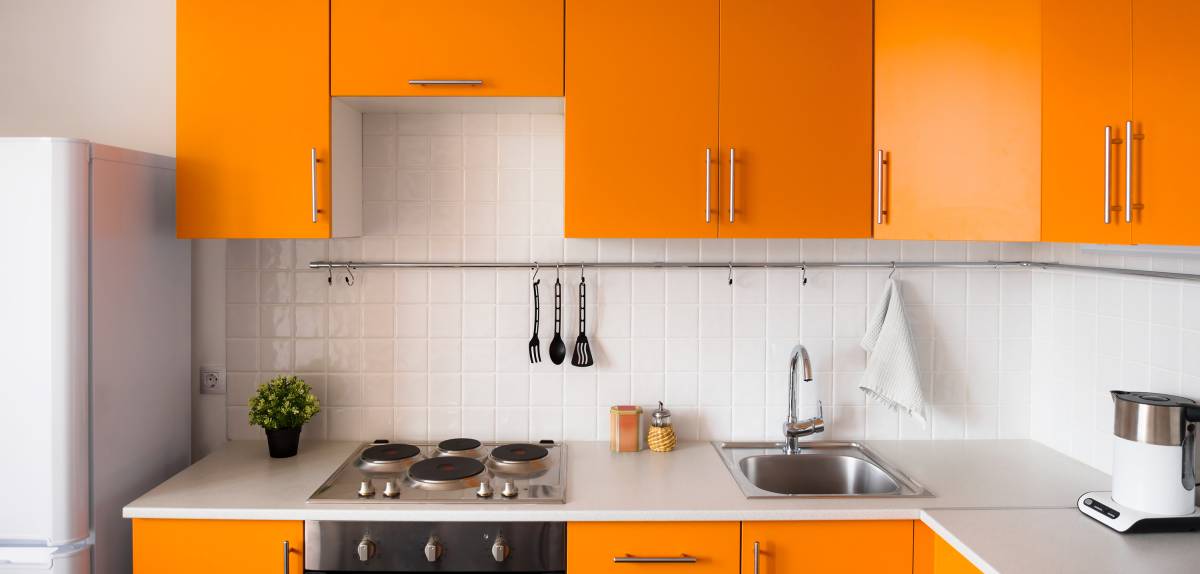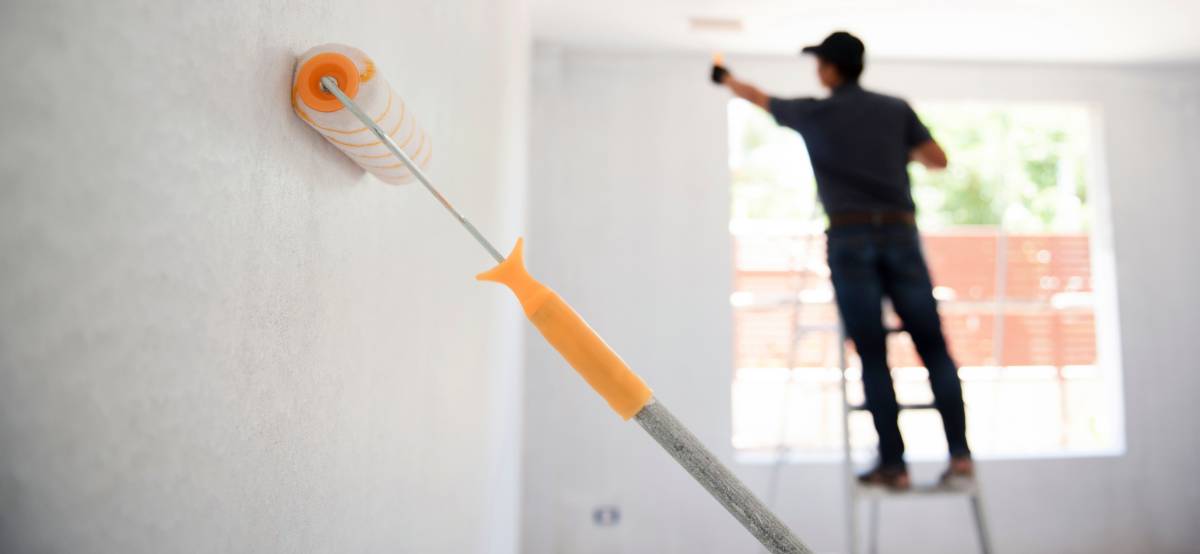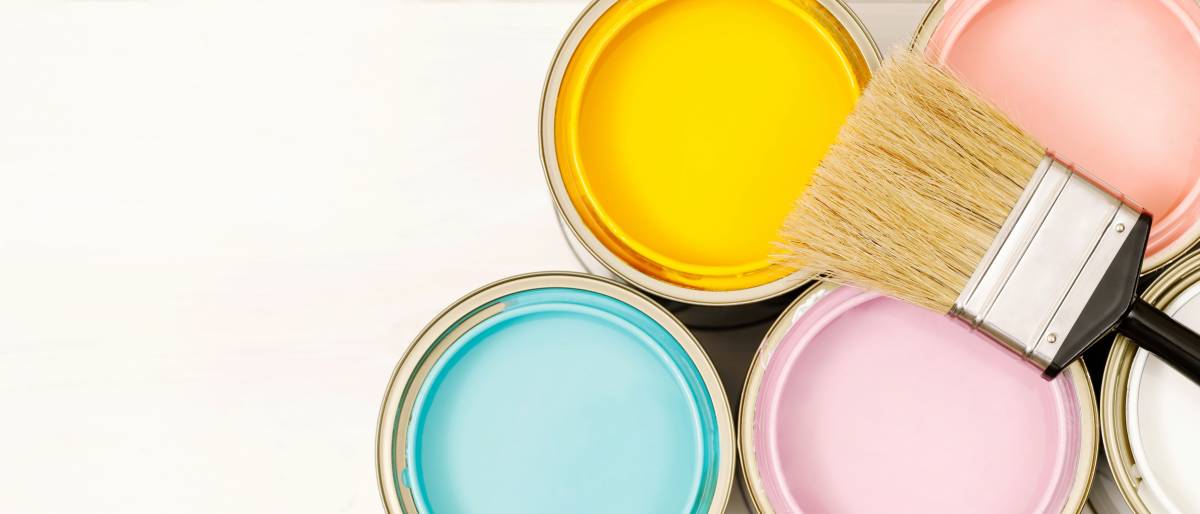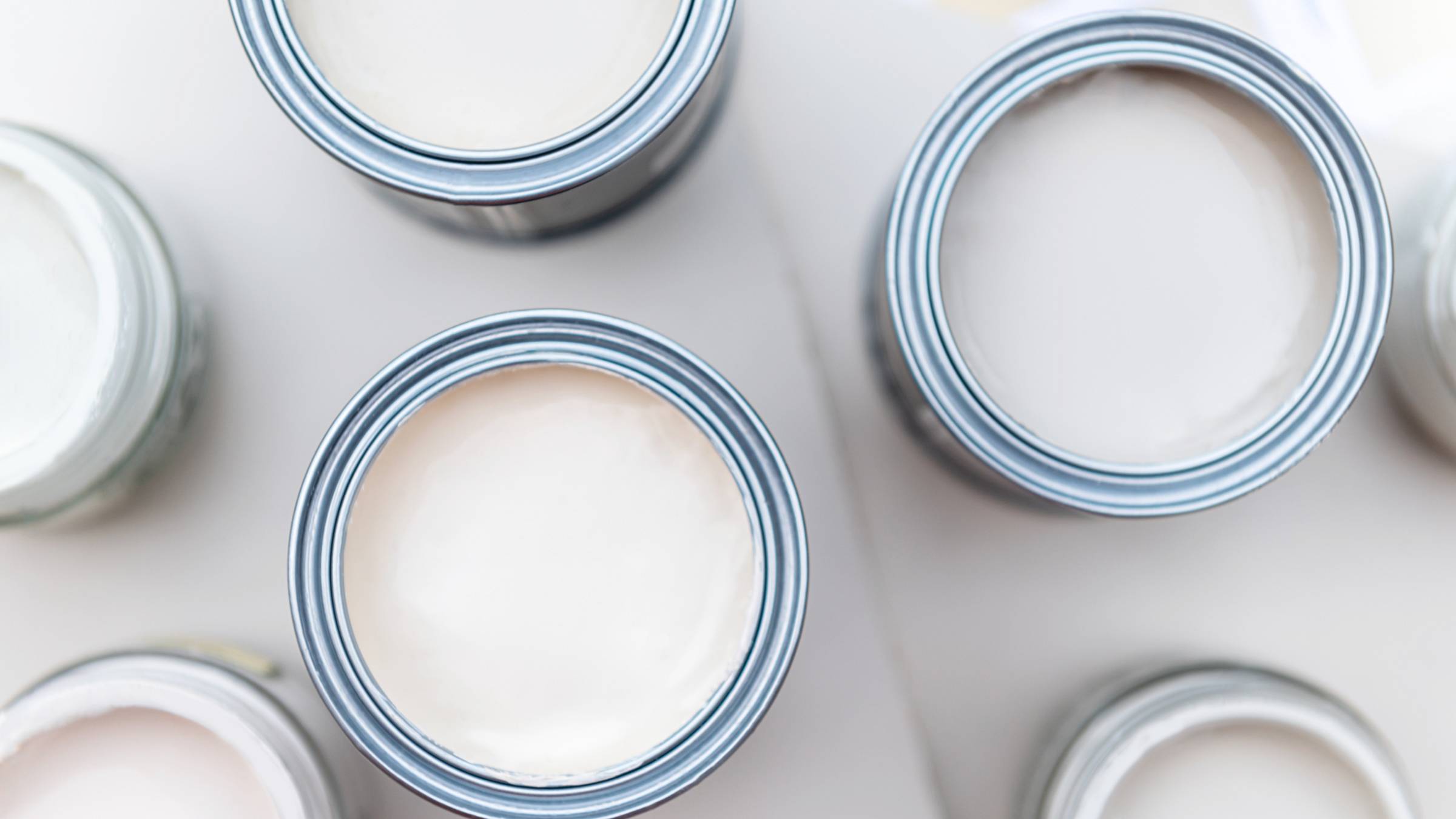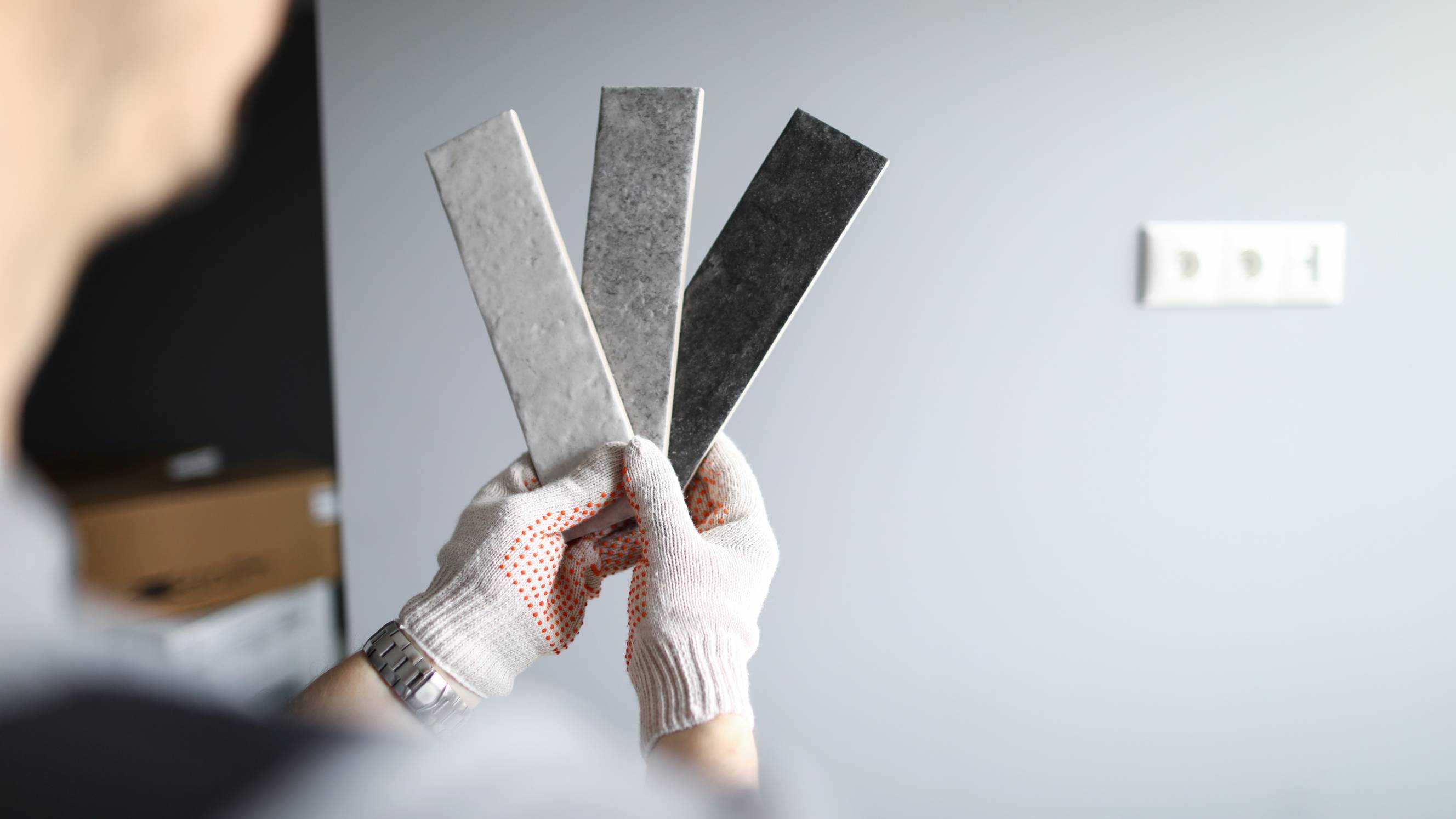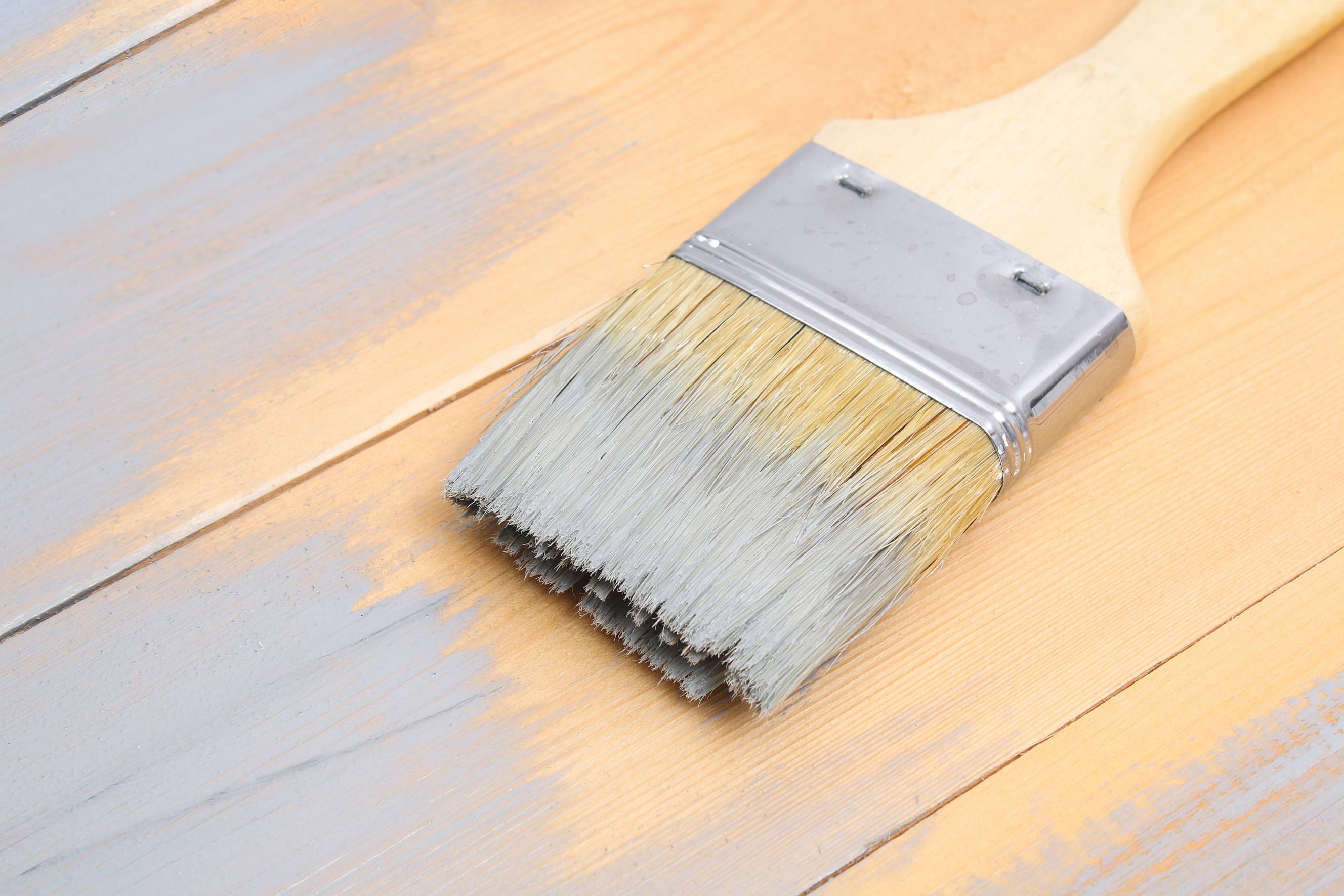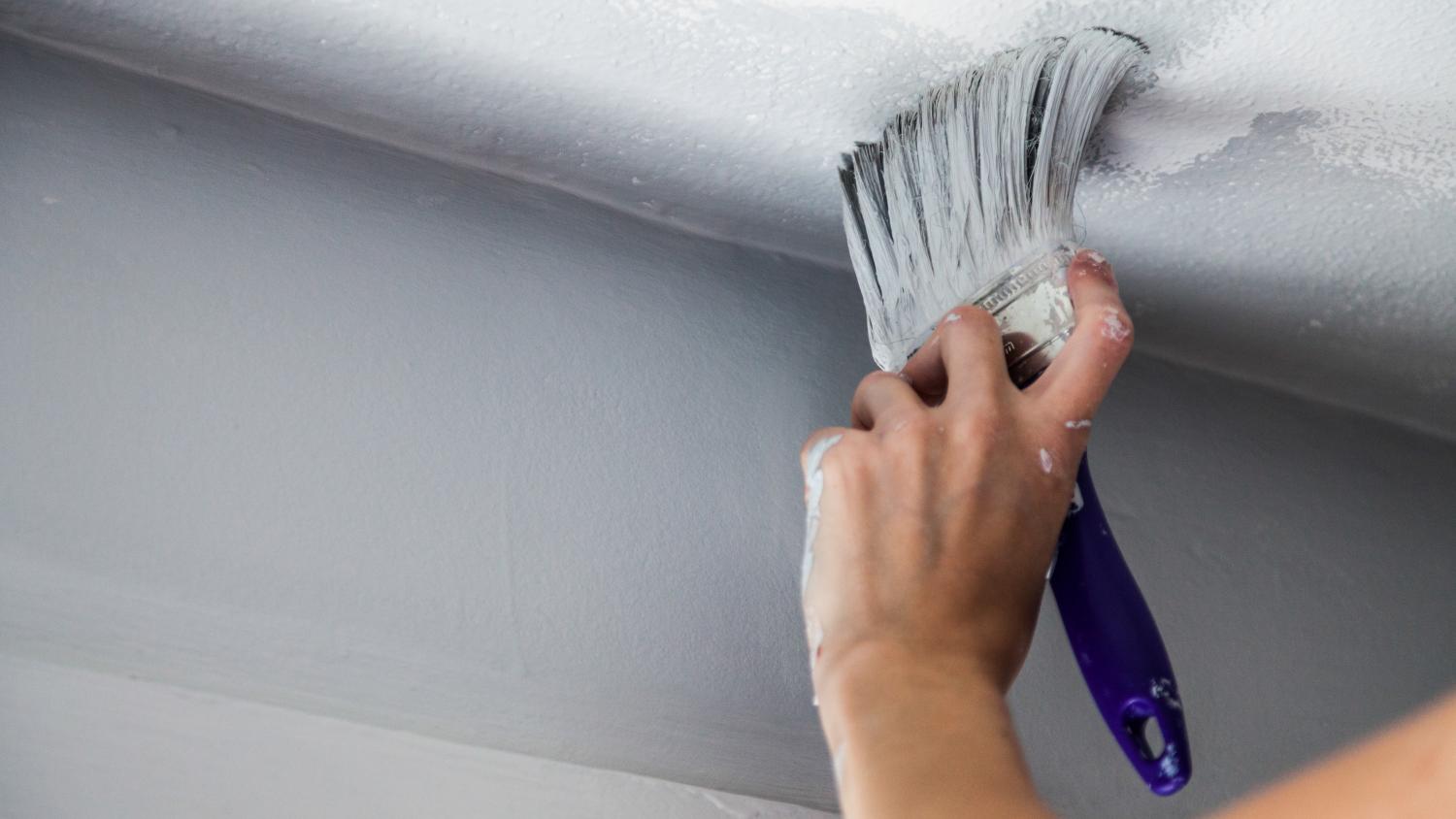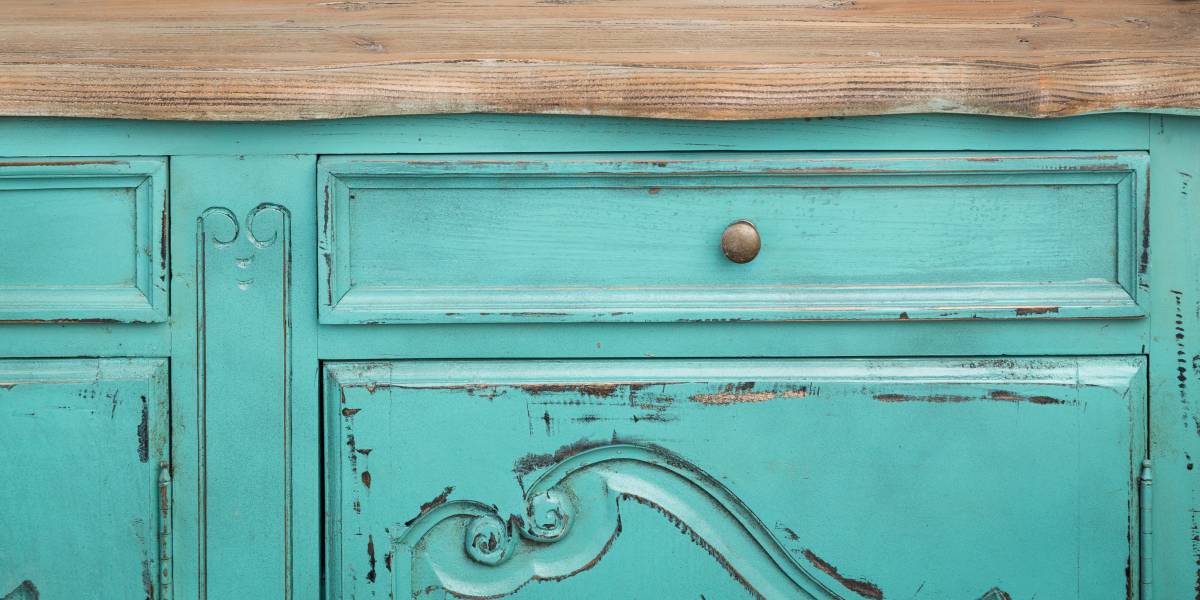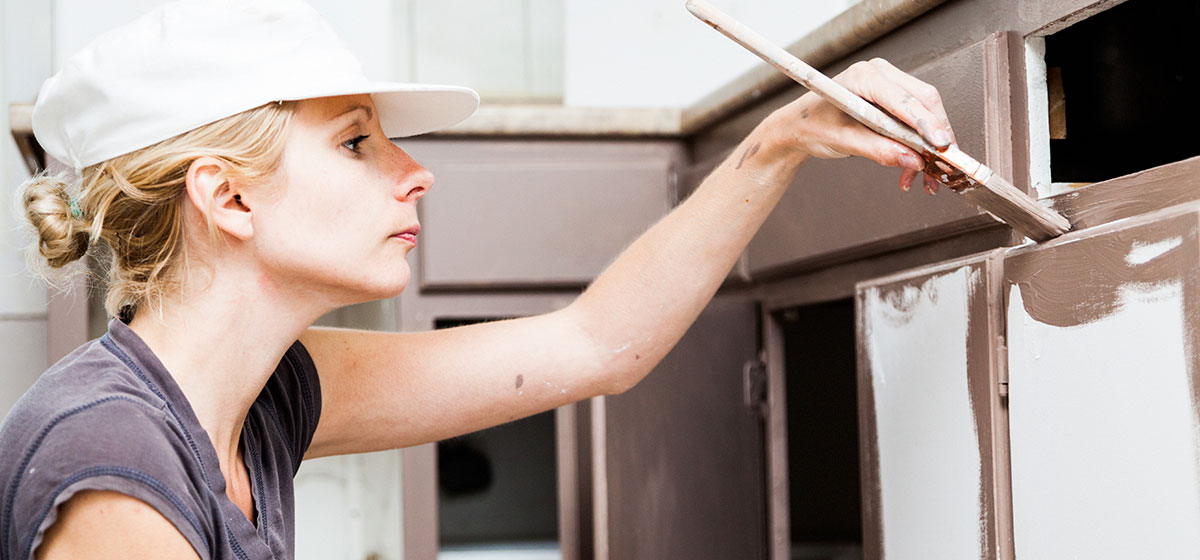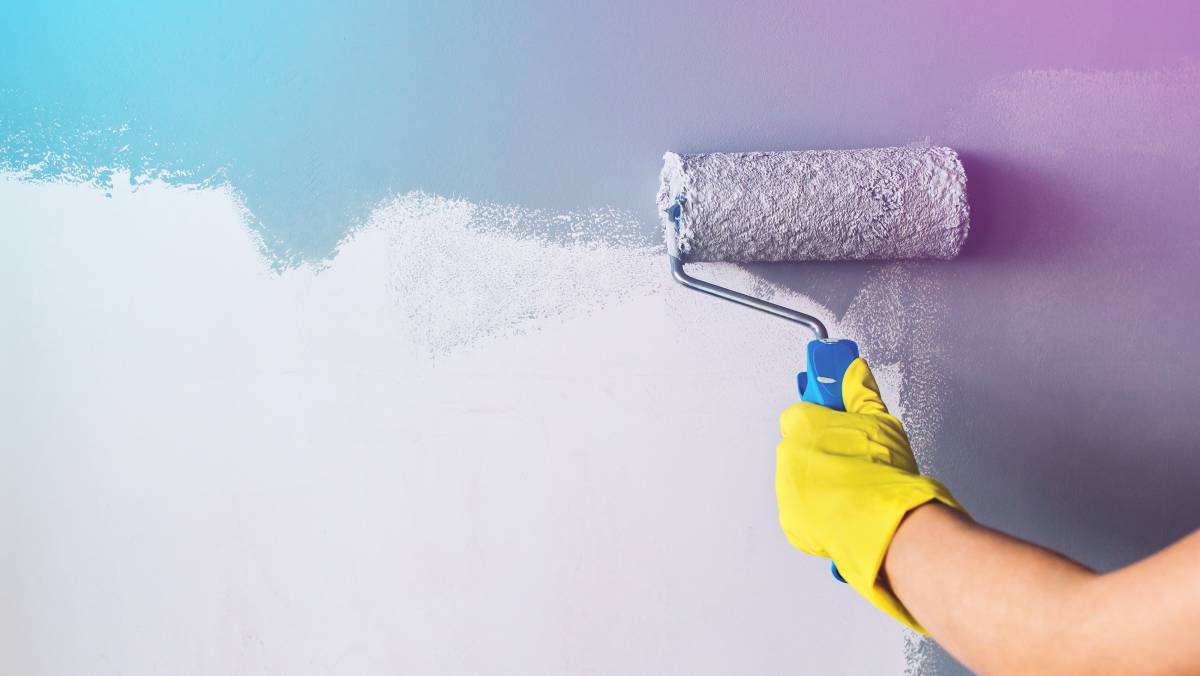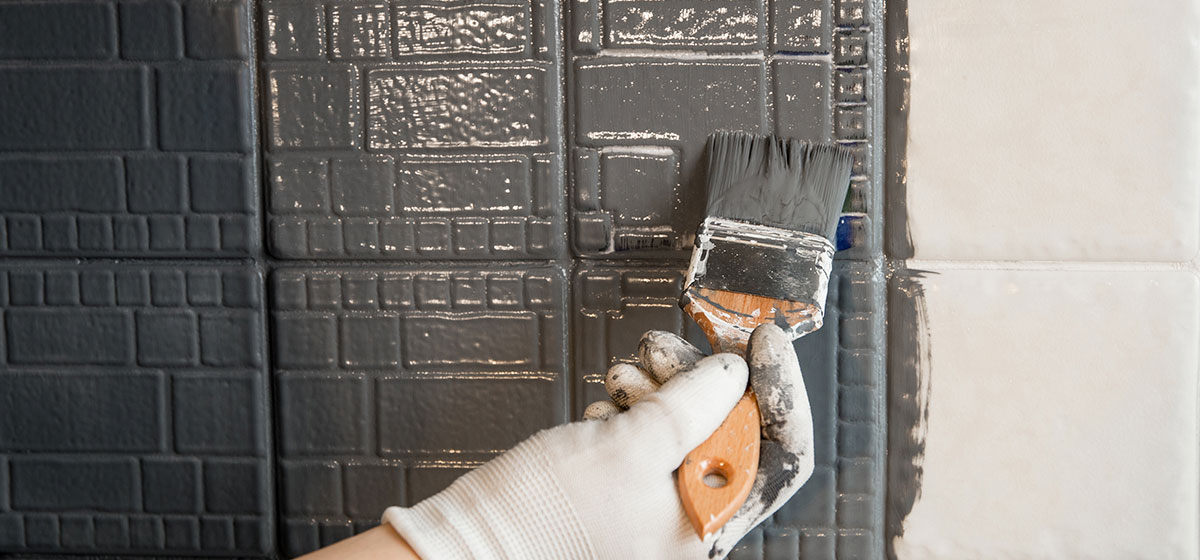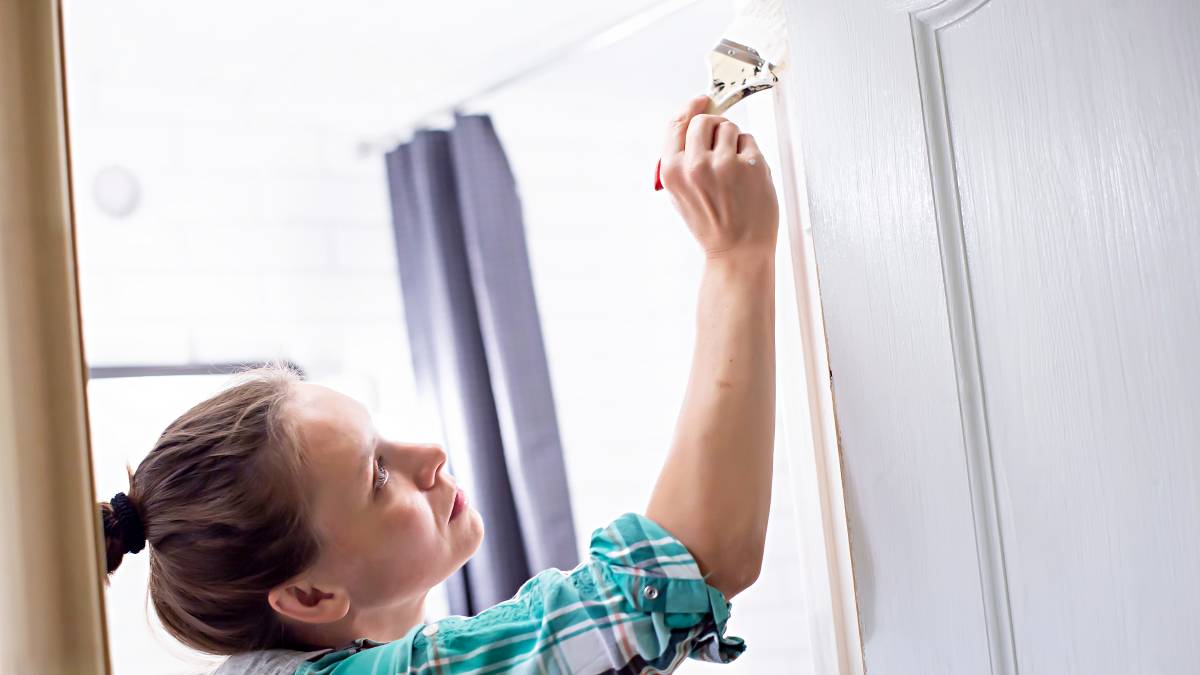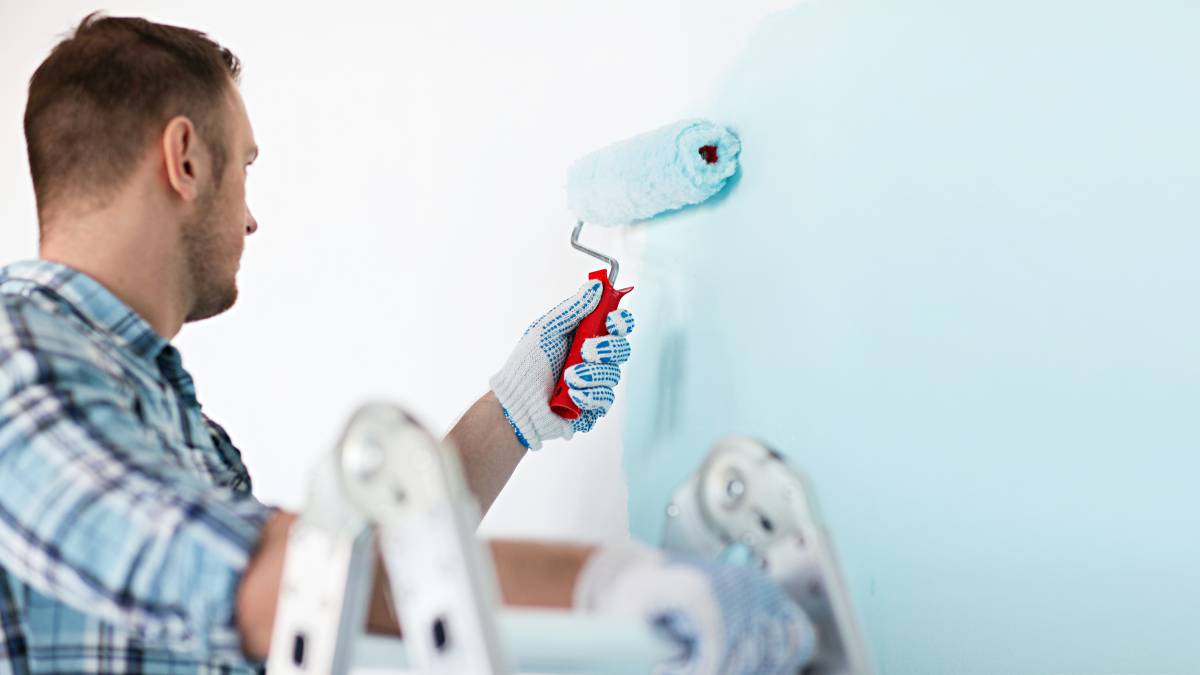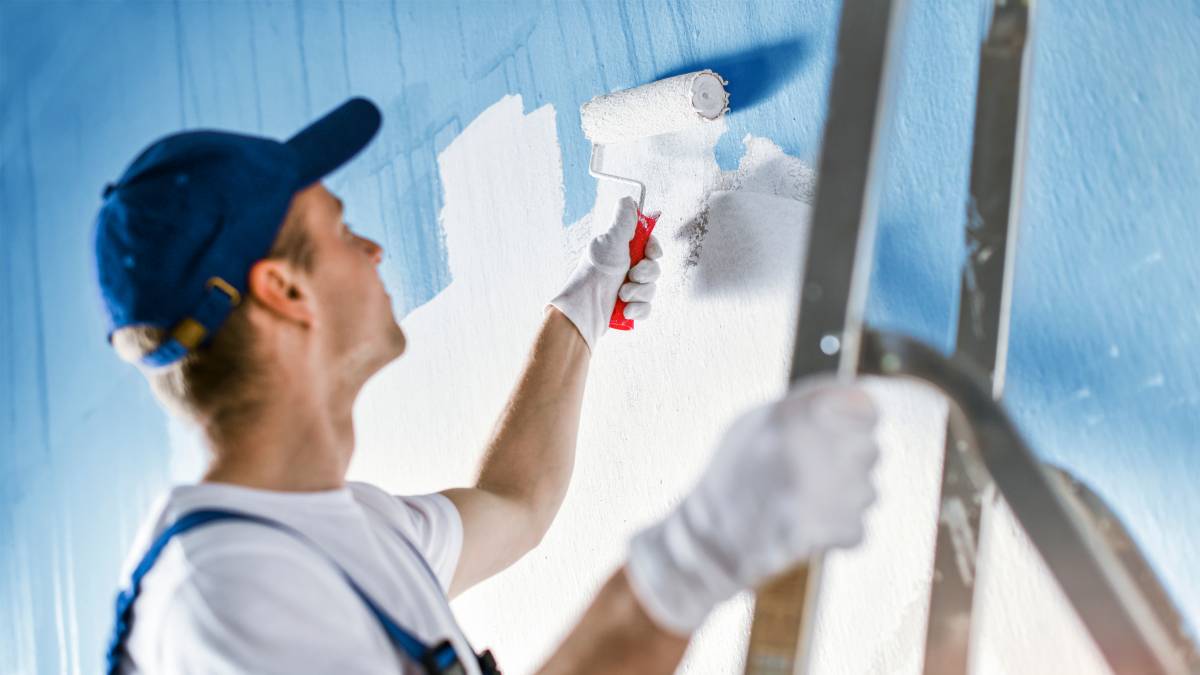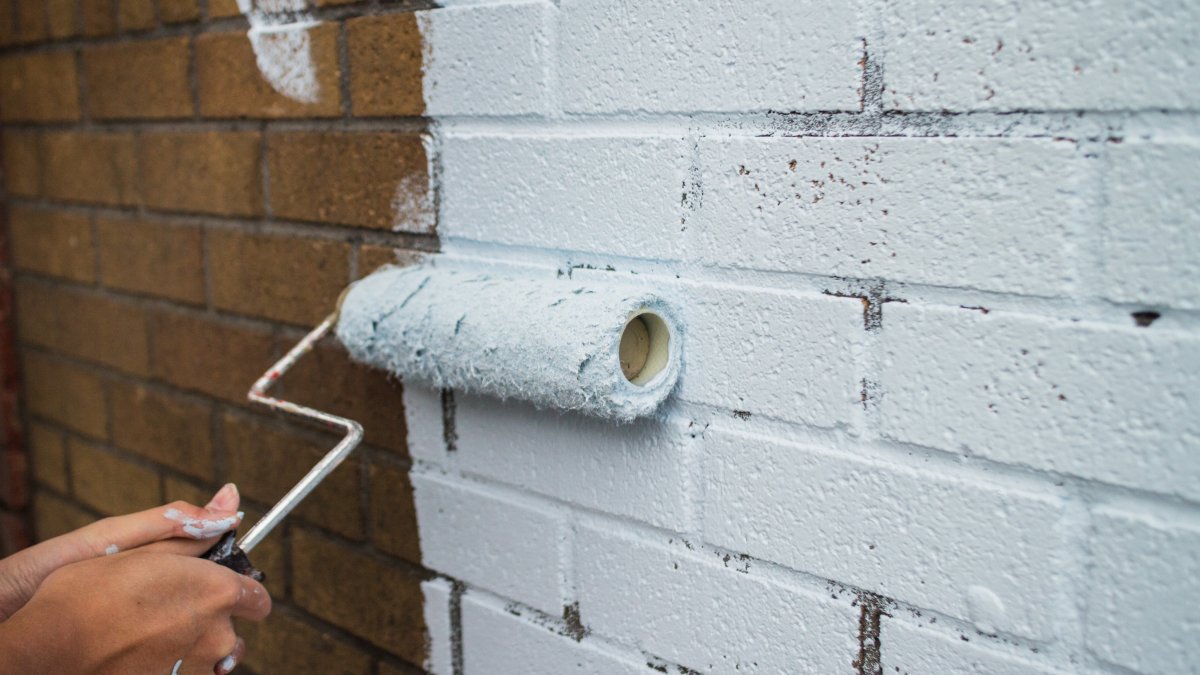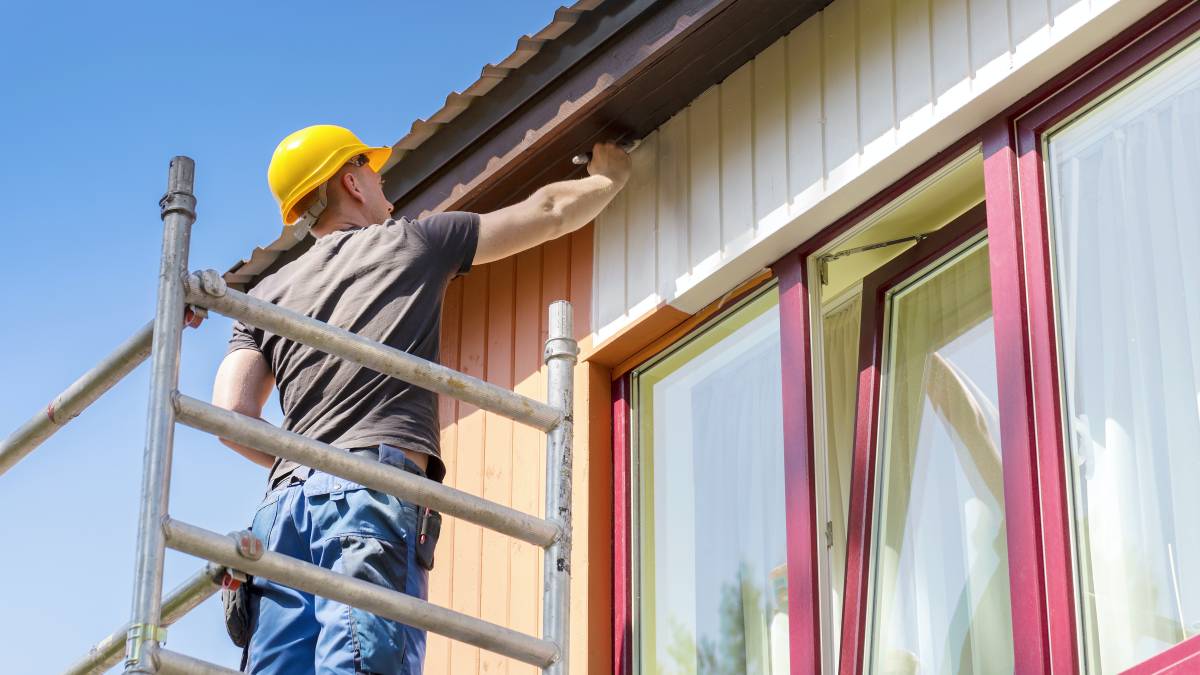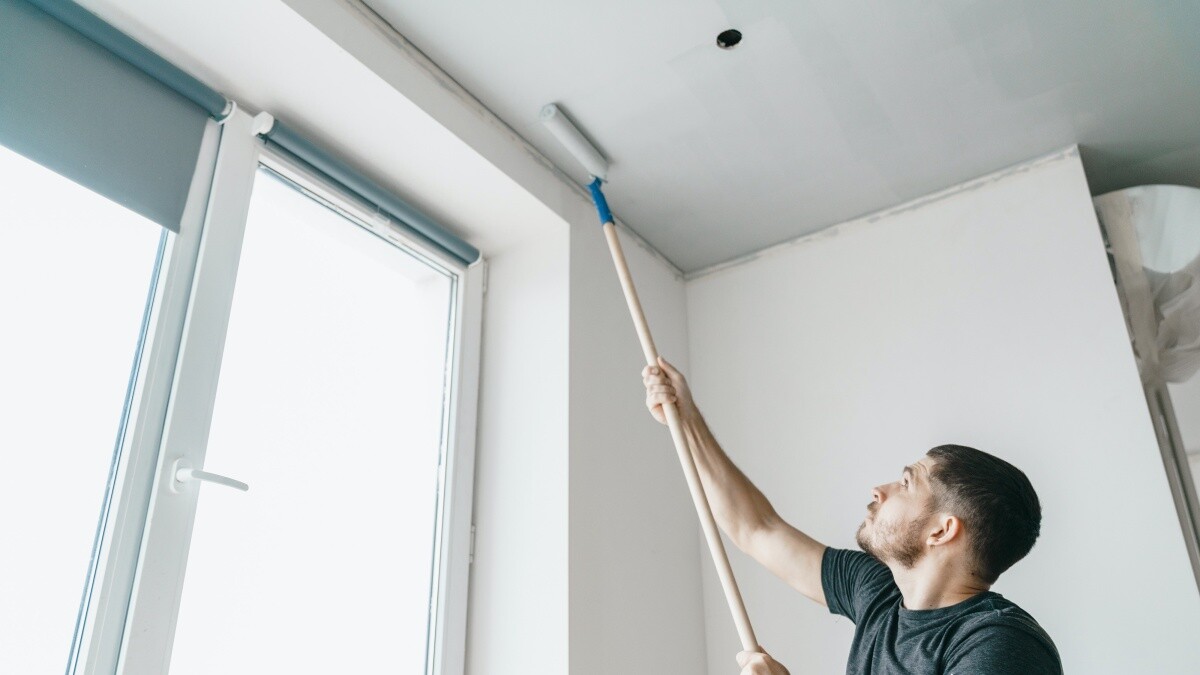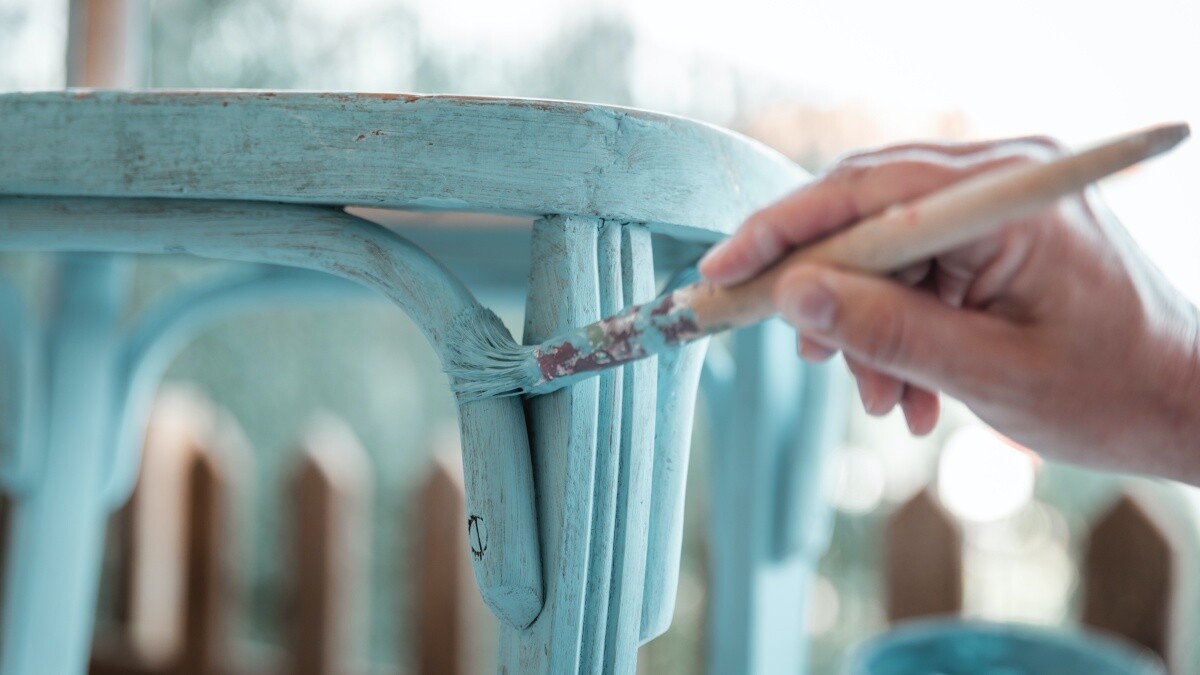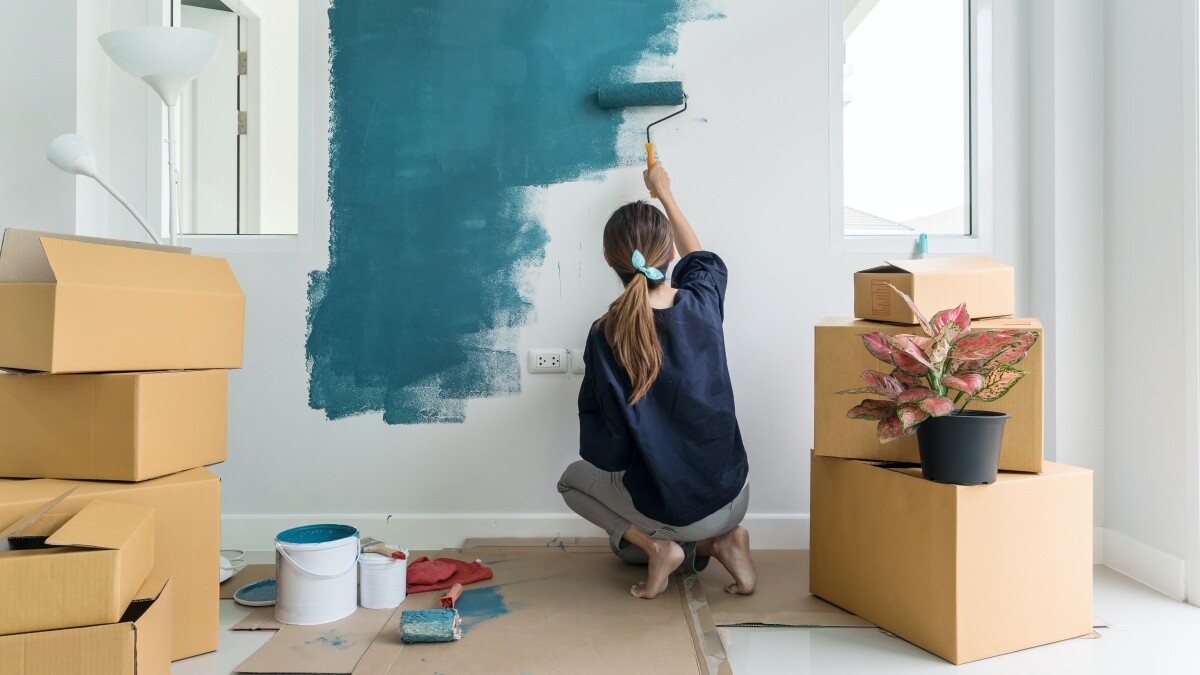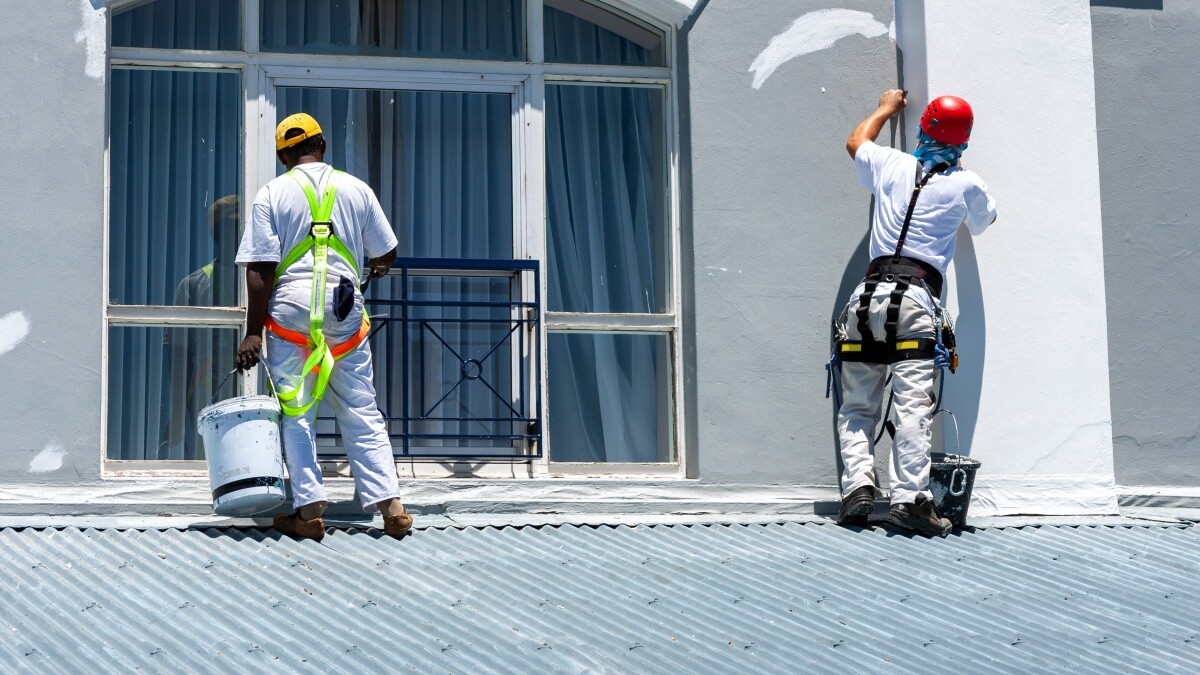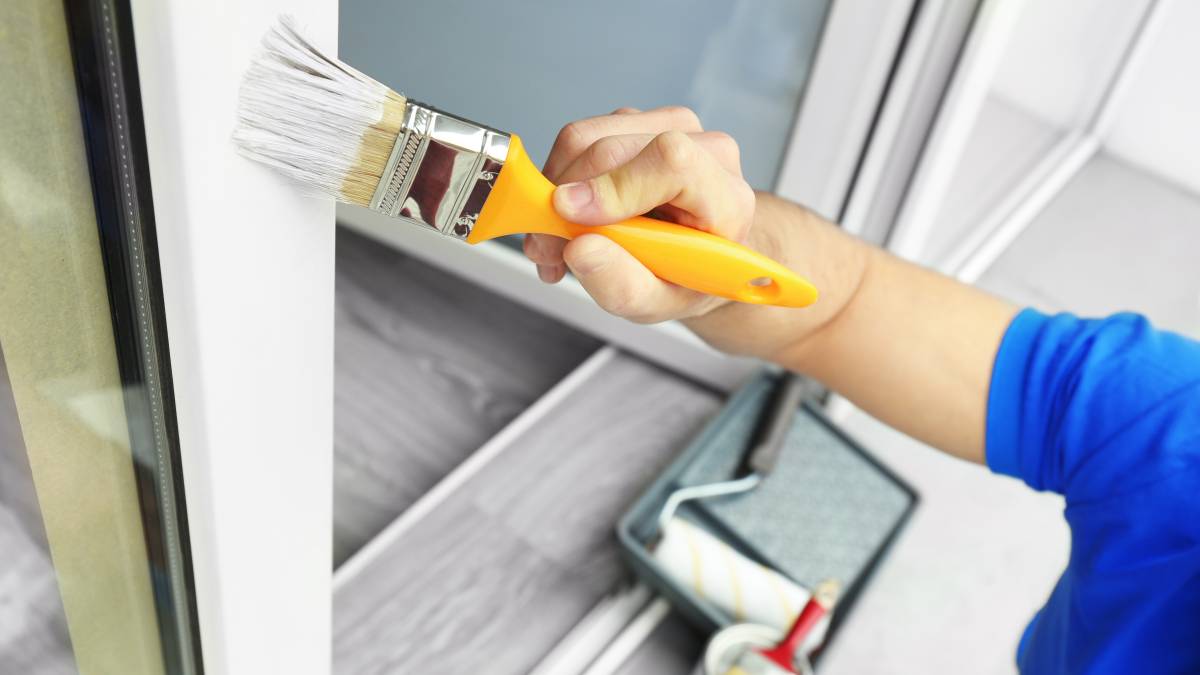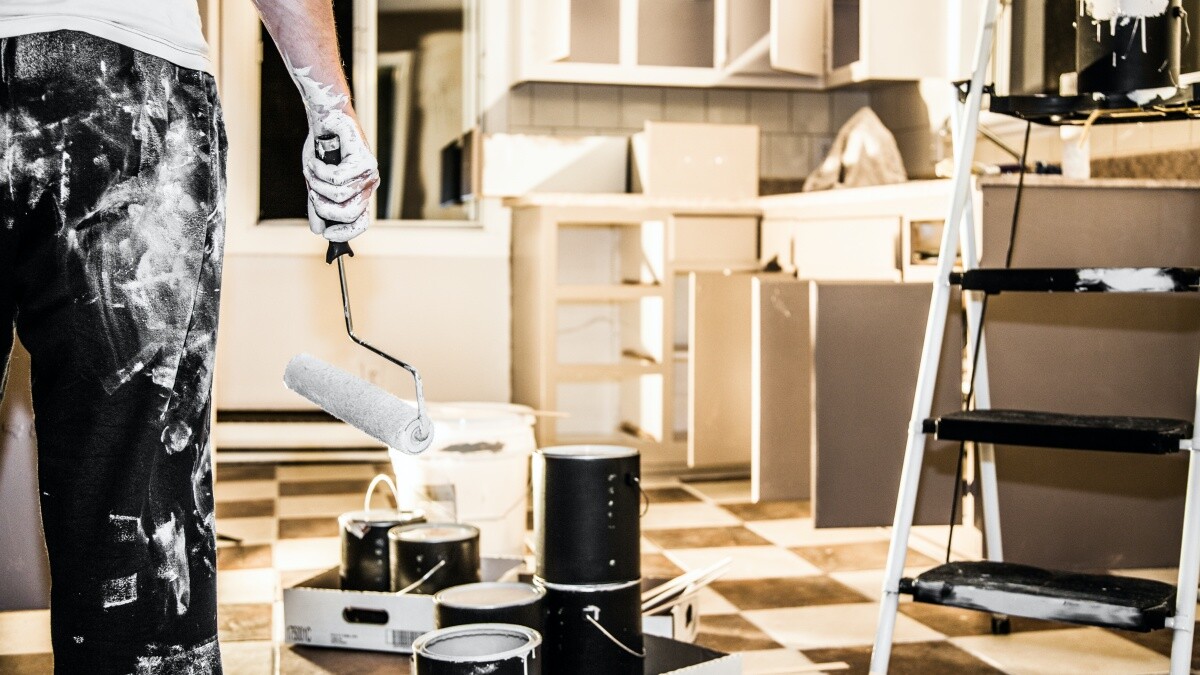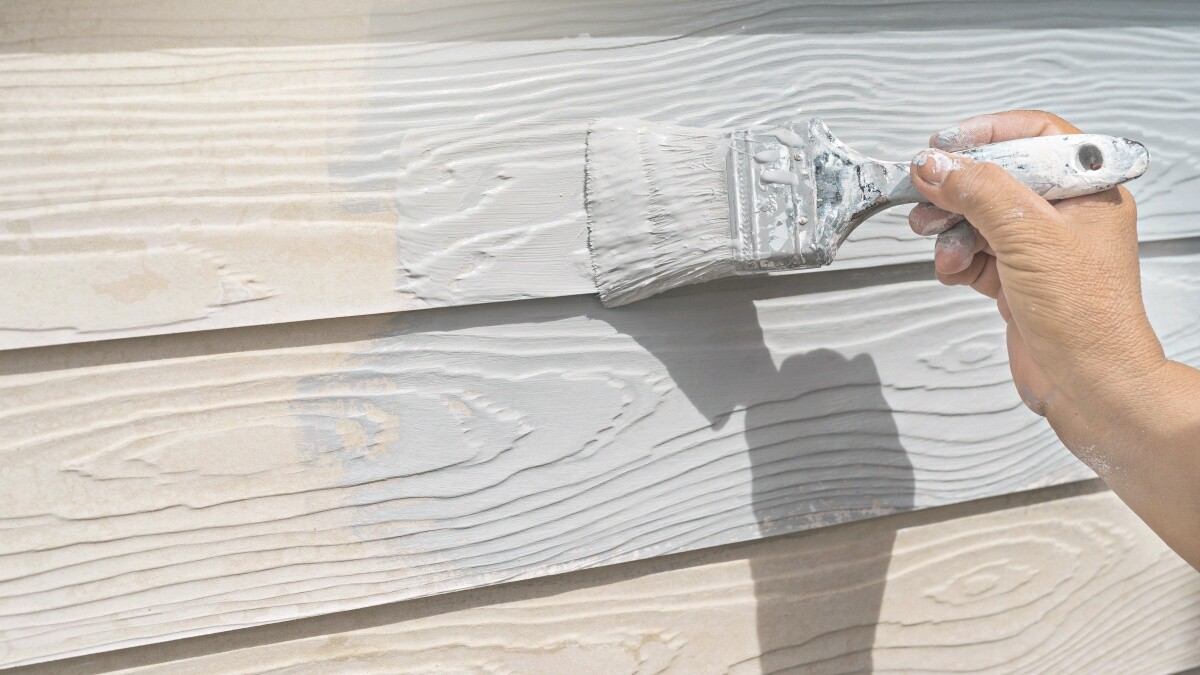- Home/
- Comparisons/
- Painting/
- Farrow and Ball Setting Plaster vs Pink Ground
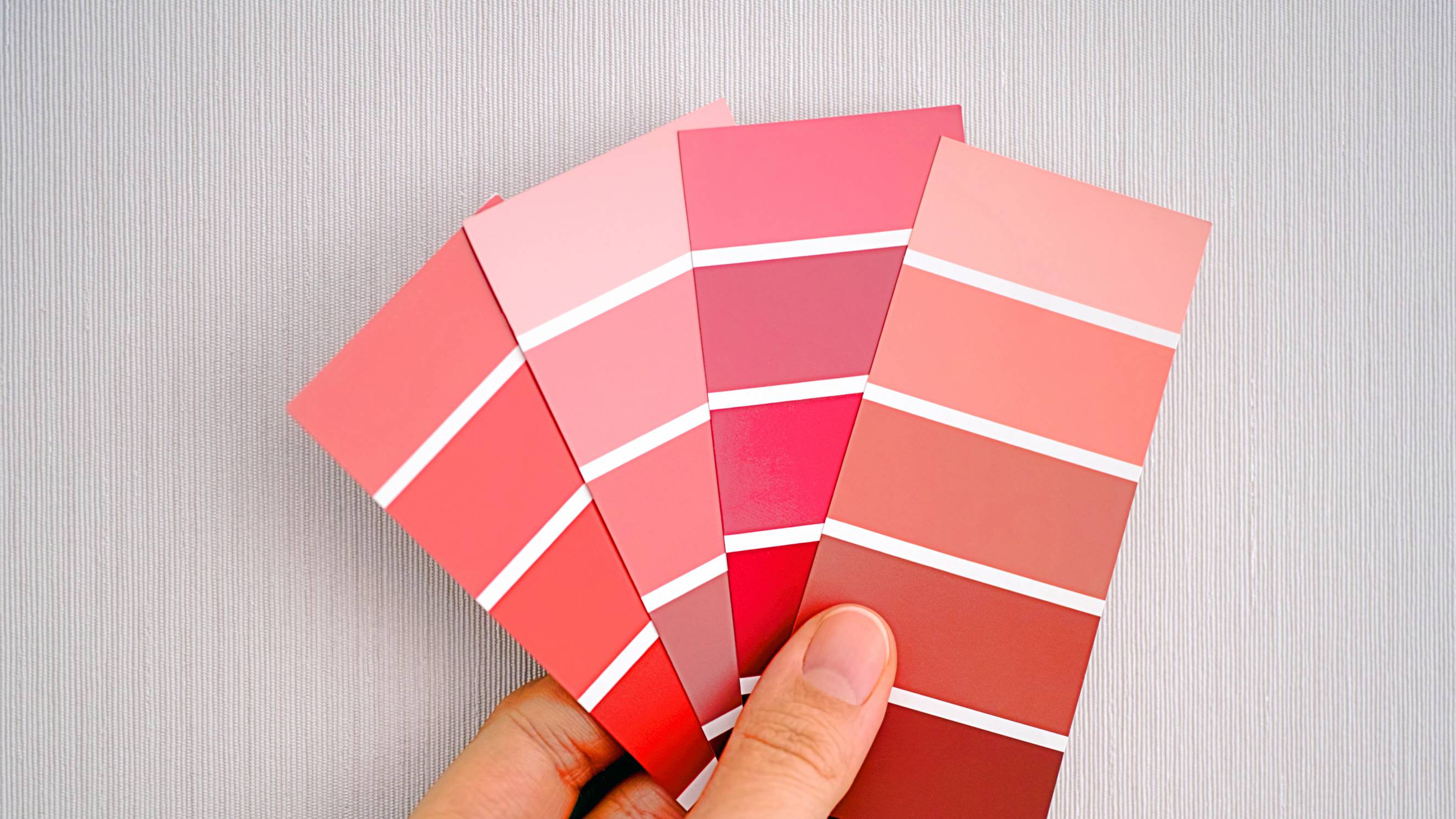
Farrow and Ball Setting Plaster vs Pink Ground: Which paint is better for your home?
Comparing Farrow & Ball Setting Plaster and Pink Ground based on cost, appearance, and more
Hire a painterLast Updated on
Key Facts
- Setting Plaster is a warm pink colour with yellow pigment. Named after the hue of a newly plastered wall, it blends well with many other shades, especially browns, making it great for old homes and spaces with antiques.
- Pink Ground is a blush pink with more yellow pigment than Setting Plaster. It looks more relaxed, lighter, and more delicate, creating a more serene atmosphere.
Do you have bland walls and want something softer than a bold statement? Pink is having a moment—and for good reason! It injects warmth, colour, and character into a space without being overwhelming than reds and yellows.
But which hue should you pick? Let’s narrow the options to Farrow and Ball Setting Plaster vs Pink Ground. Learn which shade works best for the living room and kitchen or looks warm or inviting. Also, compare these two palette standouts based on cost, durability, and eco-friendliness.
Read on if you are ready to go pink!
What colour is Farrow and Ball Setting Plaster?
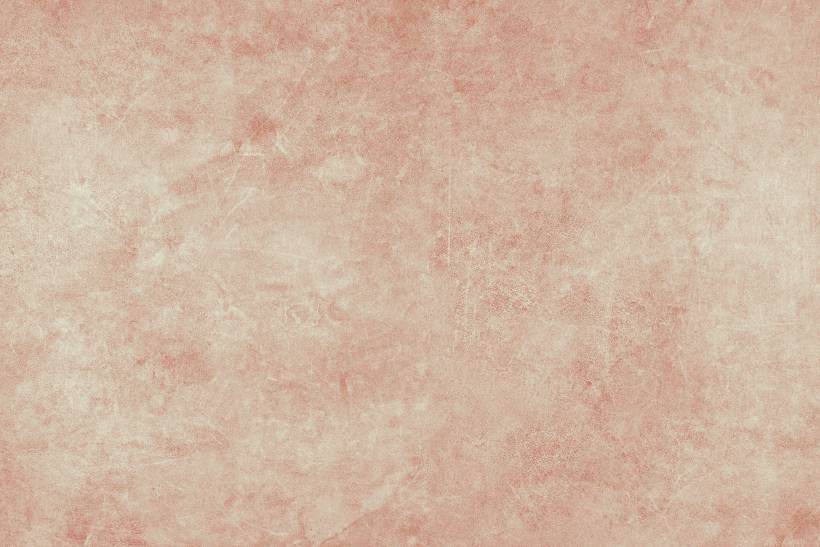
One of the famous Farrow and Ball pink colours, Setting Plaster is a true pink in historic terms. Enriched with yellow pigment, it has complex undertones that often surface when exposed to different light intensities throughout the day.
The hue evokes warmth, which makes it ideal for north-facing rooms, but also has a certain softness to it. It goes well with bolder and more neutral shades, from greens to browns, creating balance and contrast.
What colour is Farrow and Ball Pink Ground?
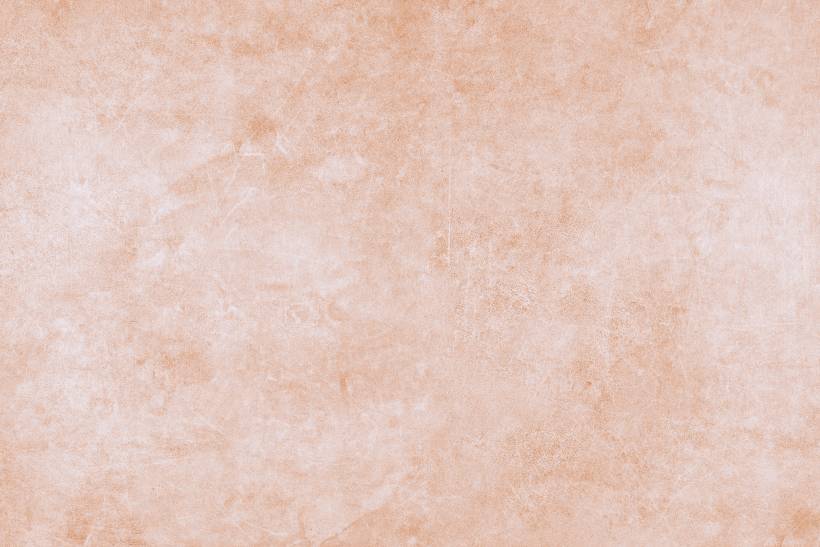
Another well-known colour is Farrow and Ball Pink Ground, which used to be a wallpaper background that many fell in love with. It shares many similarities with Setting Plaster, including having many undertones under bright light.
The most significant difference is that it has more yellow pigment, making it look like a soft pink blush. Soothing, cooling, and pleasing to the eyes, it is charming and incredibly versatile. When used in wall painting, this pink paint opens up spaces so that they feel brighter, lighter, and more airy. Bedrooms with this shade also feel more serene and relaxing.
Farrow and Ball Pink Ground vs Setting Plaster: Which is better for your needs?
Setting Plaster and Pink Ground are both dusty pink colours. Unlike the barely there neutrals, which can sometimes look dull, they create distinct spaces and transform rooms without being loud and overpowering like their vibrant counterparts, such as Rangwali and Nancy’s Blushes.
They also share many characteristics, so you are less likely to go wrong with either choice. However, because a home is a substantial investment, you might want to pick the one that truly fits your space.
Compare Farrow and Ball Pink Ground vs Setting Plaster below.
In terms of cost
If budget matters in selecting wall paint, should you go for Pink Ground or Setting Plaster? Their cost differences are more about other factors than the shades. These include:
Room size
Areas to paint
Type of paint and finish
Property condition
A Dead Flat finish for interior walls and ceilings has only 2% sheen (i.e. significantly matte). It comes in three sizes that cover between 9 and 60 square metres, with prices ranging from £31 for 750 ml to £122 for 5 litres. Modern Emulsion, with 7% sheen, costs around £60 for a 2.5-litre can for a 30-square-metre space.
Farrow and Ball also offers distemper or specialist paints for these two colours, and they are more expensive than other finishes. Casein Distemper, with a 2% sheen, alone costs over £65 for a 2.5-litre can. However, they do not require priming and are ideal in older homes, historic buildings, or property restorations.
Lastly, the cost depends on where you plan to paint. Working on the ceiling is usually pricier than dealing with walls because of the job’s complexity and risks.
In terms of appearance
Setting Plaster reminds you of freshly plastered walls after they dry. It is a dusty, soft pink colour with a lime-washed effect. Compared to other shades of pink in the palette, this is lighter than Templeton Pink. It has beautiful undertones under natural light, partly because of the yellow pigment. A Farrow and Ball Setting Plaster bedroom would look warm, timeless, and elegant.
Pink Ground has more yellow pigments, so it appears cooler, softer, and lighter than Setting Plaster. While it feels more relaxing, it is warmer than some pale pink shades without being too saccharine.
In terms of versatility
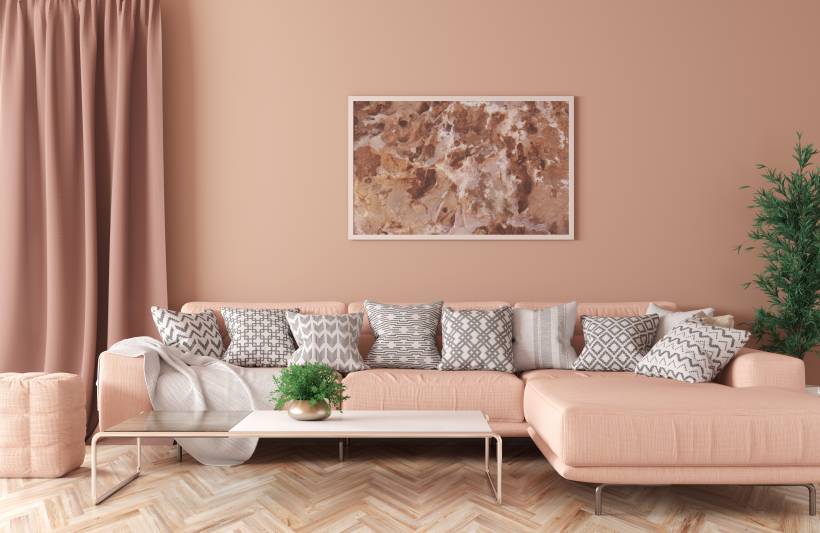
Setting Plaster and Pink Ground are versatile, although their effects on spaces vary depending on the following:
Other colours they are paired with
Amount of light that enters the rooms
Where you plan to use it
How you want to go about decorating the space
A Setting Plaster living room feels more rustic when dark browns such as Farrow and Ball’s Mahogany complement it. This pink is also the perfect shade if you have plenty of antique furniture or live in a well-preserved old home with wooden floors and walls.
Because it is warm, Setting Plaster also works excellently in darker rooms; it can make them look bigger and more inviting.
On the other hand, Pink Ground is more delicate and softer. It works best with Farrow and Ball’s Brimstone White, a nearly pure white shade with a tinge of yellow.
A Pink Ground bedroom feels cosier when complemented with a warmer white trim. It is also ideal for a dining area in a south-facing room because it tempers the effects of sunlight, especially in mid- and late afternoons. This shade also opens up the space when used on the ceiling.
Pink doors also go well with grey exteriors, which have a high home resale value. The same colour scheme is applicable to trims and kitchen cabinets.
In terms of durability
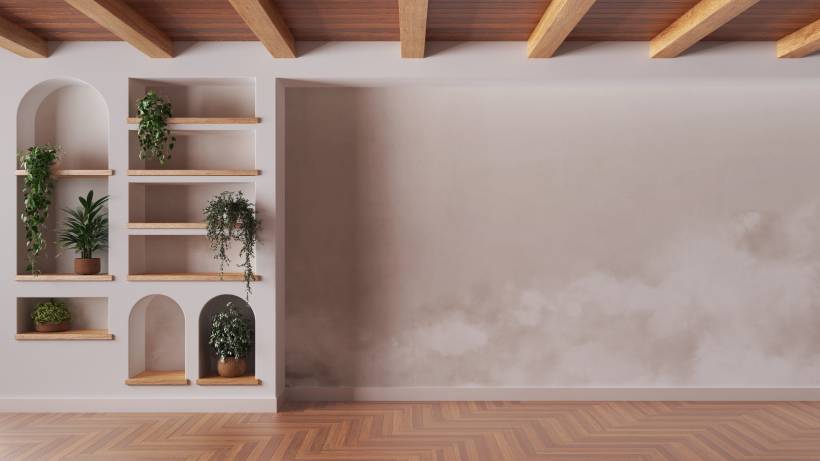
A Pink Ground living room might look relaxing, but Setting Plaster might be more maintenance-friendly because of its slightly deeper shade and warmer undertones. These attributes might make it more resistant to staining and fading and better at hiding stains, grime, and dirt in high-traffic areas, such as the kitchen, hallways, and living rooms.
However, choosing the right paint type and finish is more important than shades when it comes to durability or longevity. For example, Dead Flat is a scruff-resistant, multi-surface finish that is perfect for playrooms. Modern Eggshell is the toughest of the interior paints. This washable, mid-sheen finish is applicable to almost all types of surfaces, from wood to metal and concrete.
As its name suggests, Exterior Masonry is excellent for outside walls. It is highly breathable and water-resistant, so it prevents the growth of fungi and algae. When applied according to Farrow and Ball’s product advice sheets, it can resist flaking, peeling, and fading for at least 15 years.
In terms of eco-friendliness
Farrow and Ball’s Setting Plaster and Pink Ground are eco-friendly in many ways. The warmth of Setting Plaster might decrease the need for heating during winters in darker rooms. On the other hand, the coolness of Pink Ground might reduce heat gain in the summer, especially in south-facing rooms. Because it is lighter, it can reflect more sunlight away from the walls.
Their Gloss and Eggshell finishes now use water-based formulas without compromising durability. Emulsion paints have only trace volatile organic compounds (VOCs), the lowest rating possible, while other options contain low to minimal VOCs.
The paints’ tin cans are reusable, and the company manufactures its products in the UK to help reduce the carbon footprint. Its Dorset factory is green, recycling 100% of its dry and liquid waste. It also provides cost-effective, environmentally friendly choices for customers. For instance, you can buy sample pots or ask for colour cards.
Paint your home interiors with Airtasker
Ground Pink and Setting Plaster Farrow and Ball colour schemes are versatile, sustainable, and long-lasting. For instance, Setting Plaster can work as a wonderful backdrop for older UK homes with vintage furniture and make north-facing rooms feel warm.
While you can DIY your way to painting pink, working with professionals is more cost-effective. They apply proper techniques, use quality tools, and help reduce material costs.
Airtasker connects you to diverse experts, from consultants who can teach you how to paint high walls to renovators who specialise in old homes or historic buildings, in three steps:
Create a free account.
Post a task detailing your timeline, budget, paint preference, and needed services (e.g., touch-ups, drywall repair and patching, colour consultation, or exterior and interior painting).
Wait for quotes/proposals from Taskers.
If you wish to add a splash of colour to your home with Farrow and Ball’s Ground Pink or Setting Plaster, Airtasker can help you achieve the best results.
Farrow and Ball Setting Plaster vs Pink Ground
| Farrow & Ball Setting Plaster |
Farrow & Ball Pink Ground |
|
|
Cost |
Costs the same as Pink Ground |
Costs the same as Setting Plaster |
|
Appearance |
Warmer and bolder with some yellow pigments |
Blush or delicate pink with more yellow pigments |
|
Versatility |
Combines well with warmer or earthy shades Great for walls with art or spaces with old furniture |
Makes good contrast to bolder shades, especially when used as trims Makes bedrooms feel more relaxing |
|
Durability |
Might be more long-lasting because of its richer shade |
Might reveal more scruff marks and grime because of its lighter shade |
|
Eco-friendliness |
Might decrease the need for heating in darker rooms by making them feel warmer |
Might reflect more sunlight away during summer, reducing cooling costs |
FAQs on Farrow & Ball Setting Plaster and Pink Ground
Farrow and Ball’s Setting Plaster is more popular than Pink Ground. It was actually the leading pink paint on search trends in 2021.
For the untrained eye, Setting Plaster and Pink Ground might appear similar to the delicate Middleton Pink, especially when primed with white and light tones. They might also be confused with Dead Salmon, a changeable neutral pink.
Yes, you can order a sample pot to compare Setting Plaster and Pink Ground. It costs around £5.50 per pot with a complementary white paint so you can see the undertones.
Find painters, fast
Post a task
Related articles
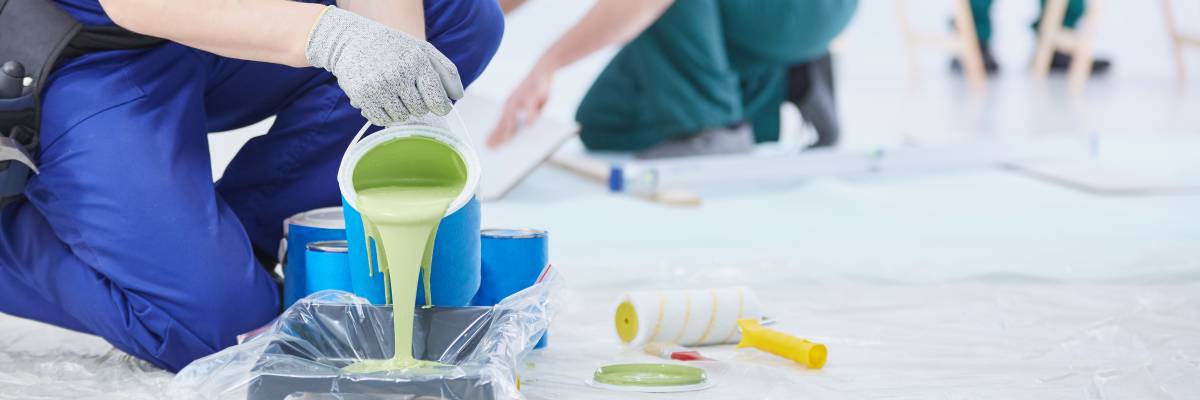
How to estimate a paint job in 4 steps
Read more
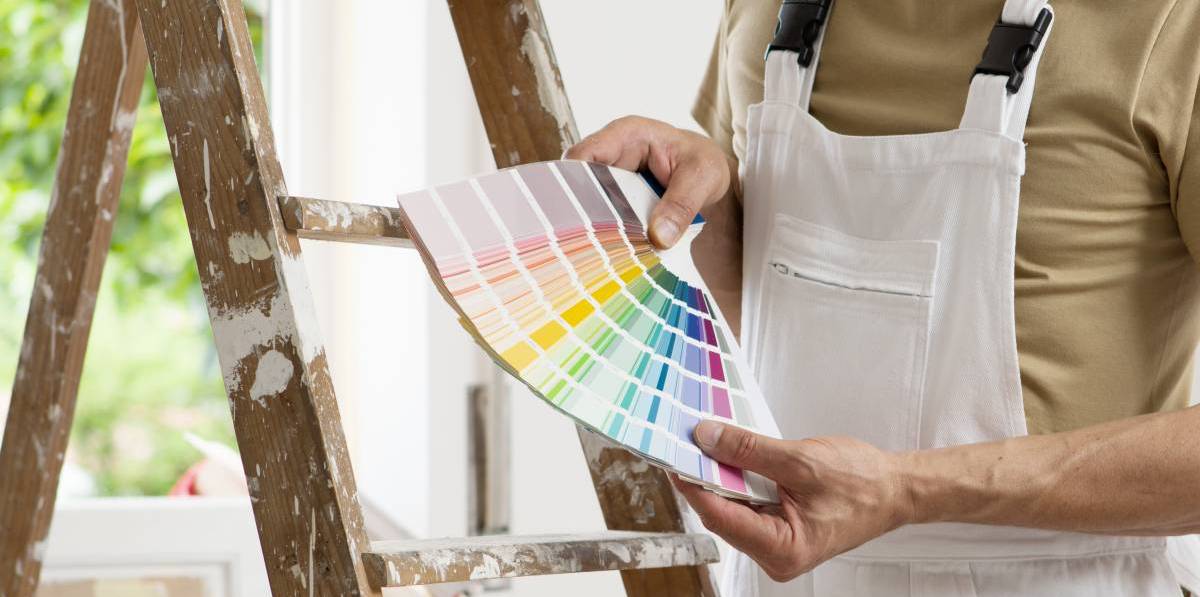
How much do painters make?
Read more
Related price guides
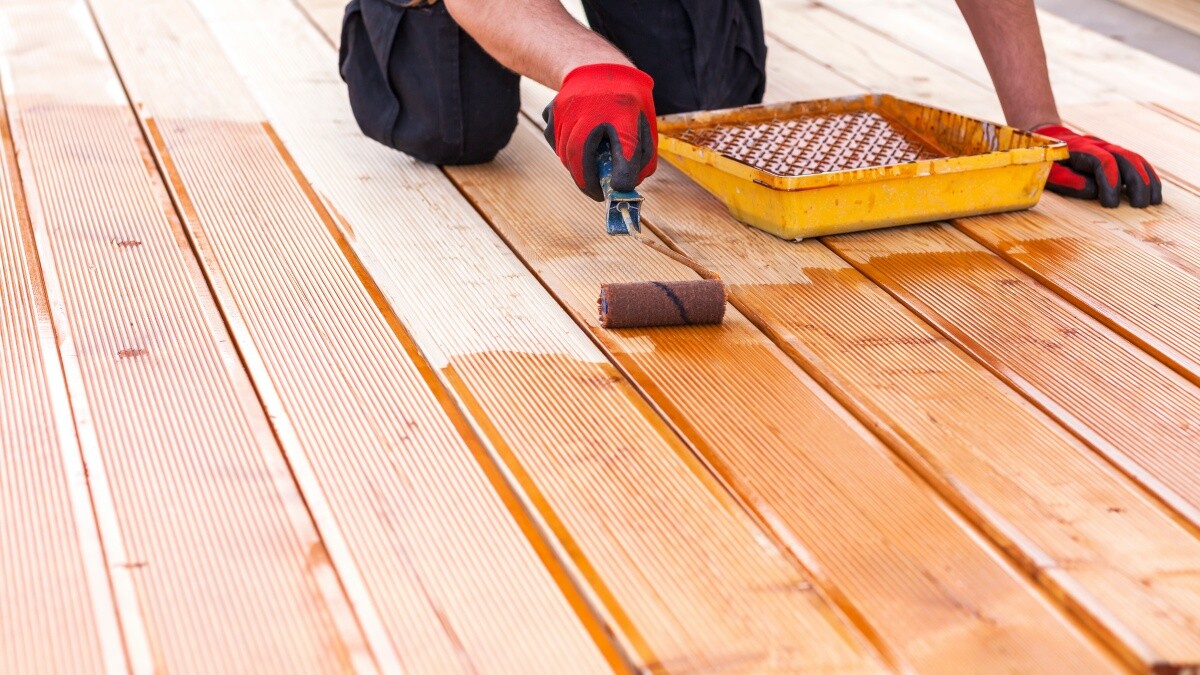
How much does deck painting cost?
Read more
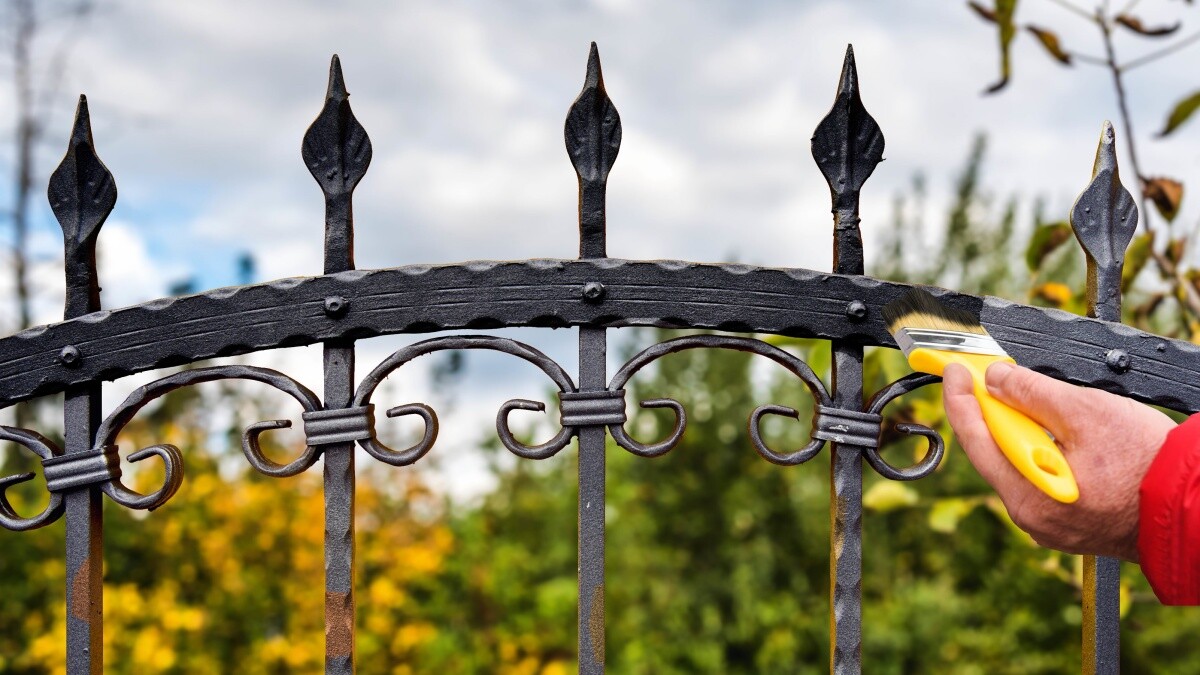
How much does fence painting cost?
Read more
